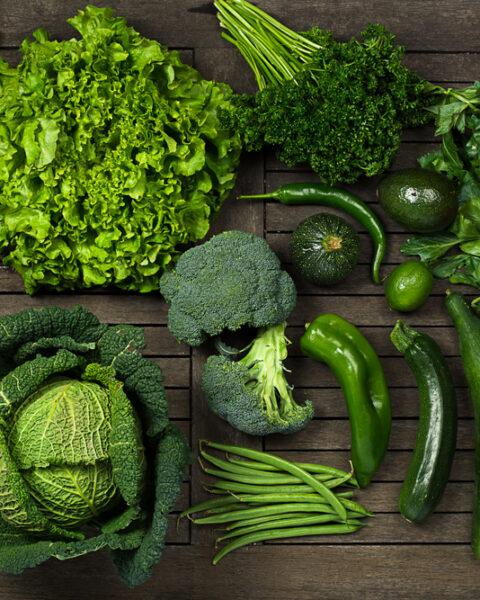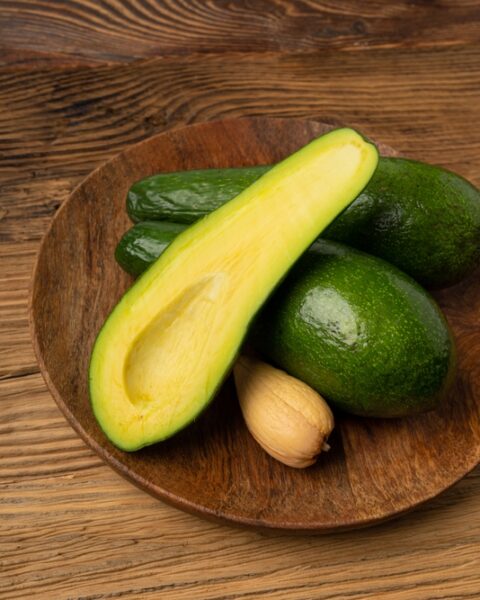Tired of the same old meals? It’s time to spice up your menu with some truly bizarre foods you never knew you needed. From unusual textures to unexpected flavors, these dishes are sure to excite even the most adventurous eaters. Join us as we explore the world of culinary oddities that might just become your new favorites.
Contents
- 1 Century Egg
- 2 Casu Marzu
- 3 Escamoles
- 4 Balut
- 5 Hákarl
- 6 Sannakji
- 7 Surströmming
- 8 Durian
- 9 Fugu
- 10 Bird’s Nest Soup
- 11 Kopi Luwak
- 12 Rocky Mountain Oysters
- 13 Witchetty Grub
- 14 Escargot
- 15 More From RetailShout
- 16 15 Irresistible Appetizer Recipes for Your Next Party
- 17 17 Packaged Foods with More Sugar Than You Think
Century Egg
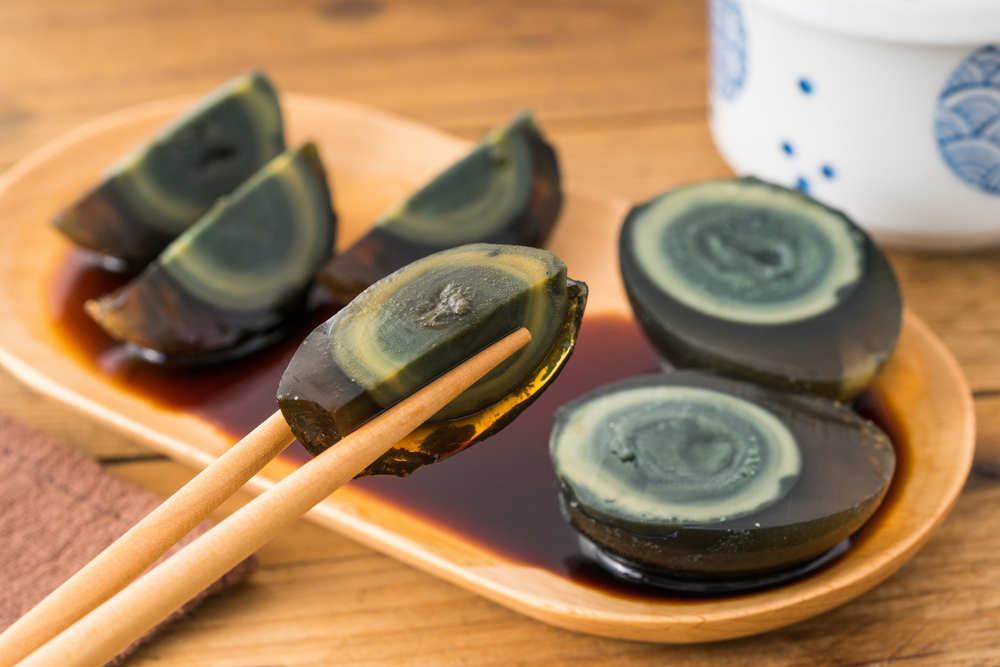
Century eggs are a Chinese delicacy made by preserving duck, chicken, or quail eggs in a mixture of clay, ash, and quicklime for several weeks to months. This process transforms the egg into a dark, jelly-like consistency with a strong, pungent flavor. Despite their intimidating appearance, century eggs are often enjoyed in congee or sliced as a savory appetizer. Their unique taste is surprisingly delicious and a must-try for adventurous eaters.
Casu Marzu
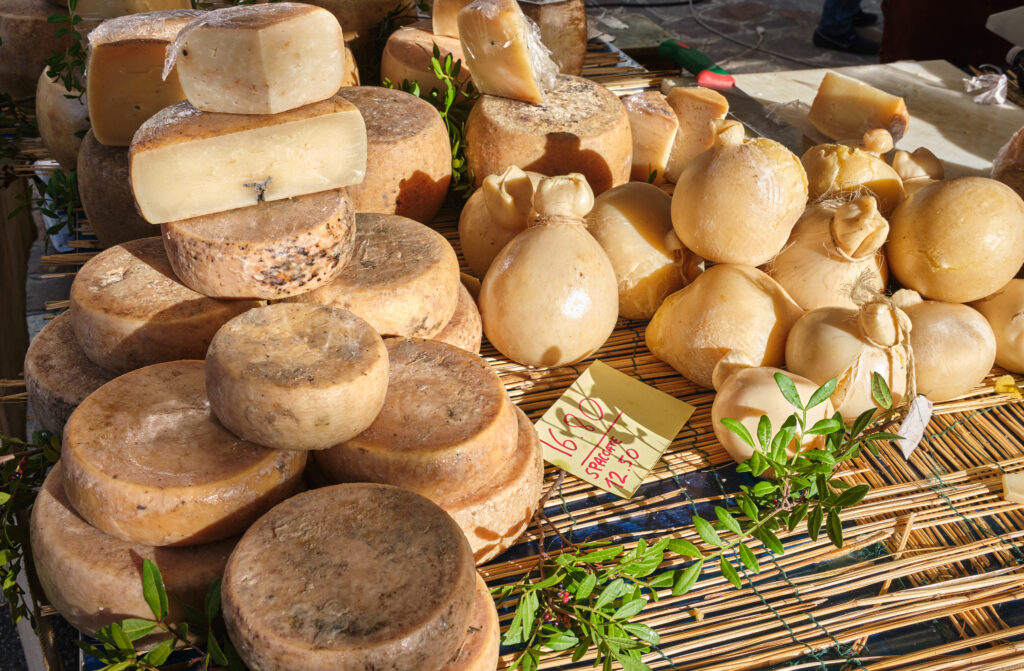
Casu Marzu, also known as “maggot cheese,” is a traditional Sardinian cheese containing live insect larvae. The larvae facilitate the fermentation process, breaking down the cheese fats and giving it a soft, creamy texture. The flavor is intense and pungent, with a spicy kick that’s unlike any other cheese. It’s considered a delicacy in Sardinia, though its consumption is controversial and not for the faint-hearted.
Escamoles
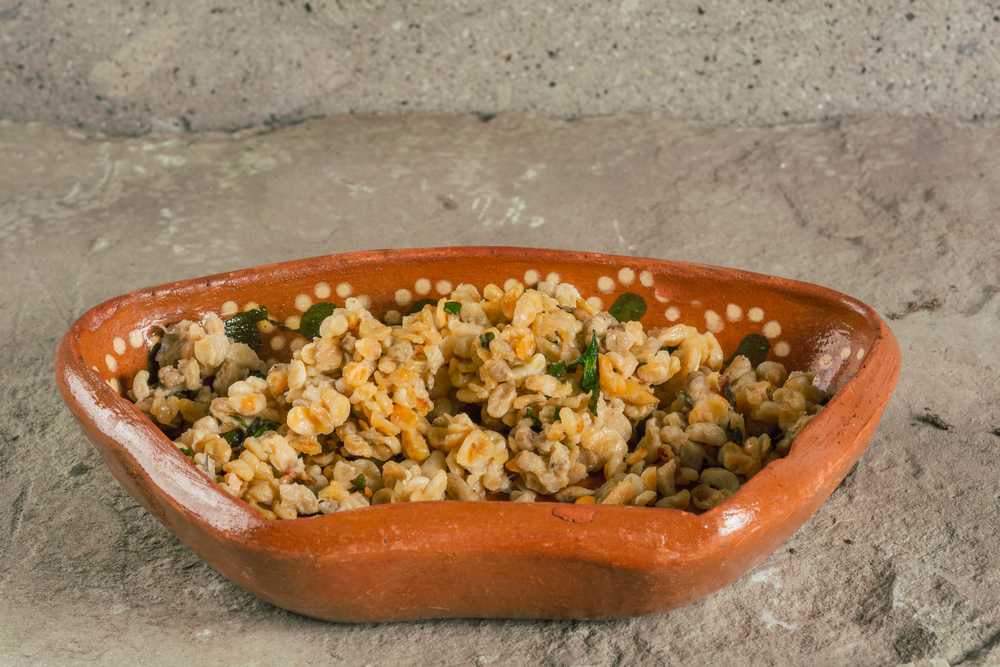
Known as “insect caviar,” escamoles are edible ant larvae harvested from the roots of the agave plant in Mexico. They have a nutty, buttery taste and are often served in tacos or omelets. This traditional dish dates back to Aztec times and is still enjoyed in Mexican cuisine today. Its unique flavor and texture make it a fascinating and delicious delicacy.
Balut
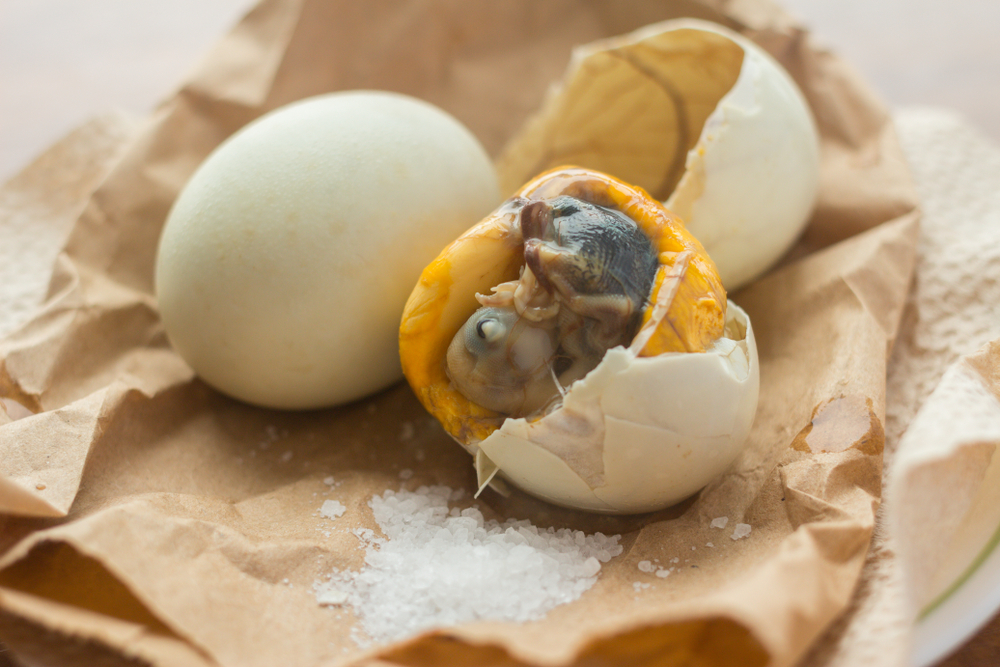
Balut is a popular street food in the Philippines, consisting of a fertilized duck egg with a partially developed embryo inside. The egg is boiled and eaten directly from the shell, often with a pinch of salt or a splash of vinegar. It’s known for its rich, savory taste and unique combination of textures. While it may seem daunting, balut is cherished for its flavor and is a staple in Filipino cuisine.
Hákarl
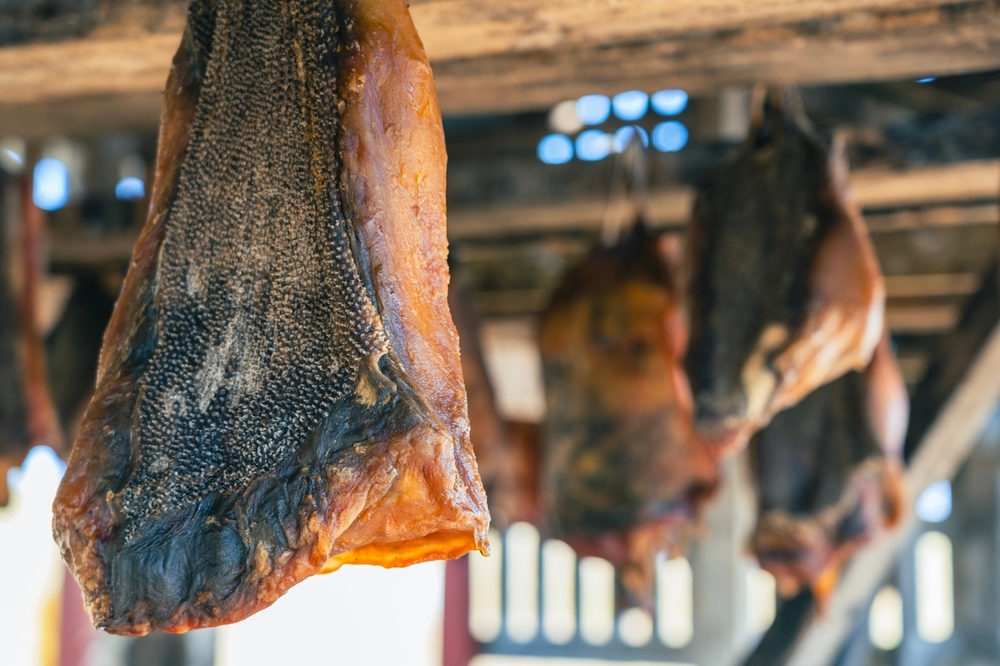
Hákarl is an Icelandic dish made from the fermented meat of the Greenland shark. The shark’s meat is toxic when fresh, so it undergoes a lengthy fermentation process and is then hung to dry for several months. The result is a pungent, ammonia-rich flavor that can be an acquired taste. This traditional food is often served in small cubes and is a significant part of Icelandic heritage.
Sannakji
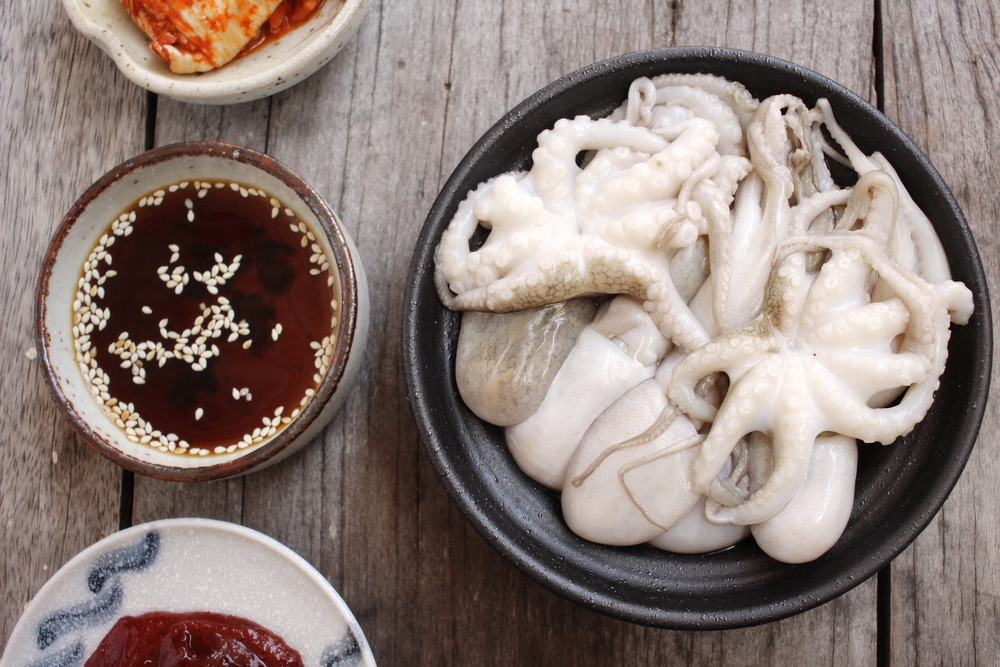
Sannakji is a Korean dish featuring live octopus tentacles that are sliced and served immediately, still wriggling on the plate. The tentacles are typically seasoned with sesame oil and sesame seeds, providing a fresh, chewy texture. Eating sannakji requires careful chewing, as the suction cups can stick to the mouth and throat. It’s a popular delicacy for its unique sensory experience and flavor.
Surströmming

Surströmming is a Swedish fermented herring known for its incredibly strong odor. The herring is fermented for several months and then canned, continuing to ferment in the can. When opened, the smell can be overwhelming, but the fish is enjoyed with flatbread, potatoes, and onions. Despite its powerful aroma, surströmming has a distinctive, tangy taste that some find quite appealing.
Durian
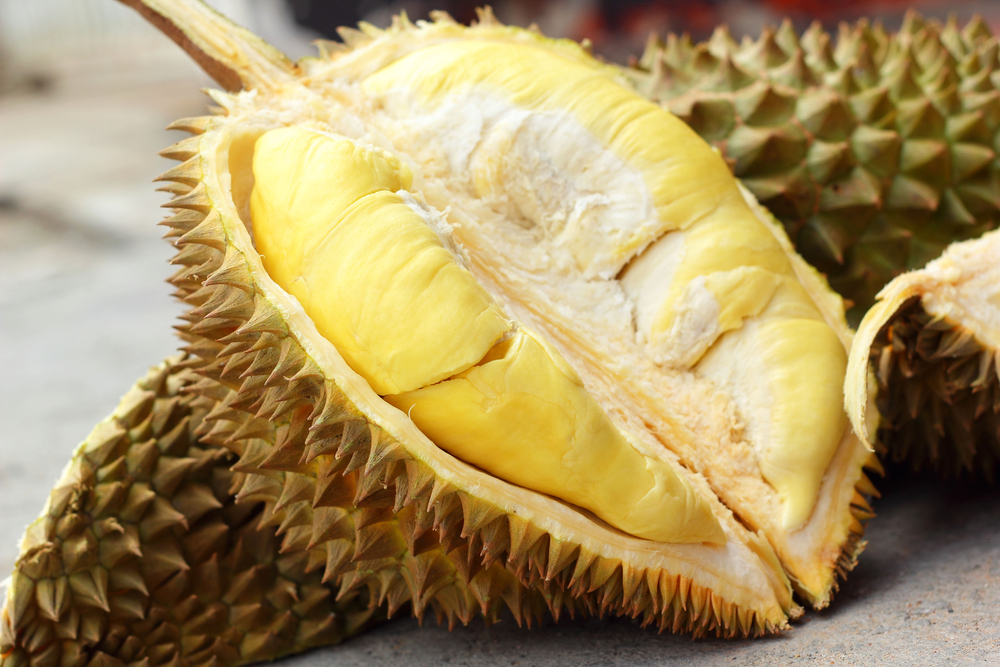
Often referred to as the “king of fruits,” durian is notorious for its strong smell, which can be off-putting to many. This Southeast Asian fruit has a creamy texture and a unique flavor that combines sweet and savory notes. While its odor is banned in many public places, durian is beloved by those who appreciate its rich taste. It’s a divisive fruit that’s worth trying for its distinctive culinary experience.
Fugu
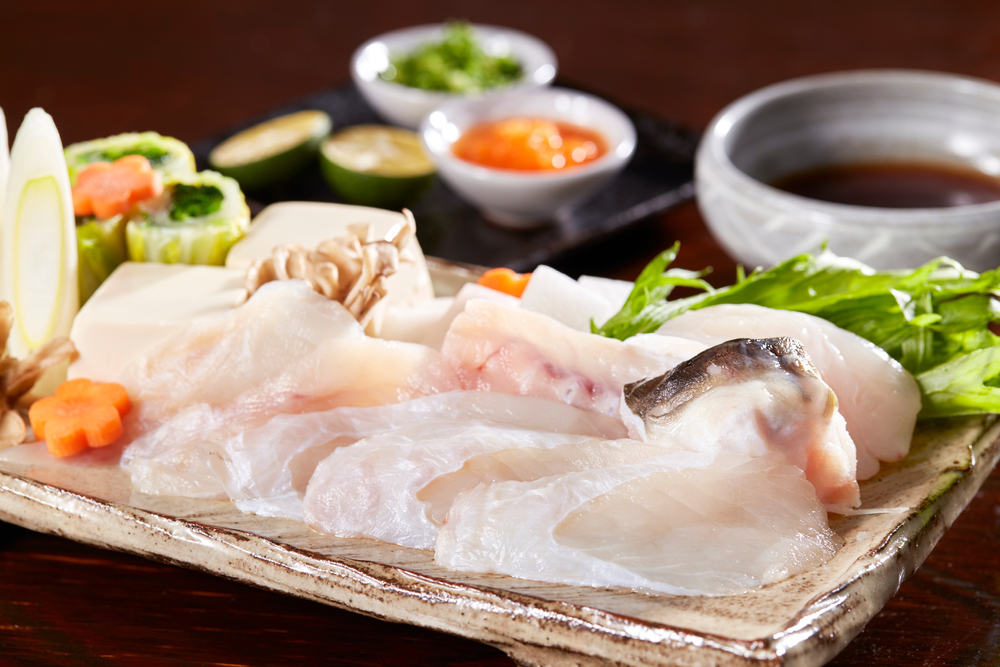
Fugu is a Japanese delicacy made from pufferfish, which contains lethal amounts of tetrodotoxin. Only specially trained and licensed chefs can prepare fugu, ensuring the toxic parts are removed. The fish is often served as sashimi or in a hot pot, prized for its delicate flavor and texture. Eating fugu is a culinary thrill due to the skill required to prepare it safely.
Bird’s Nest Soup
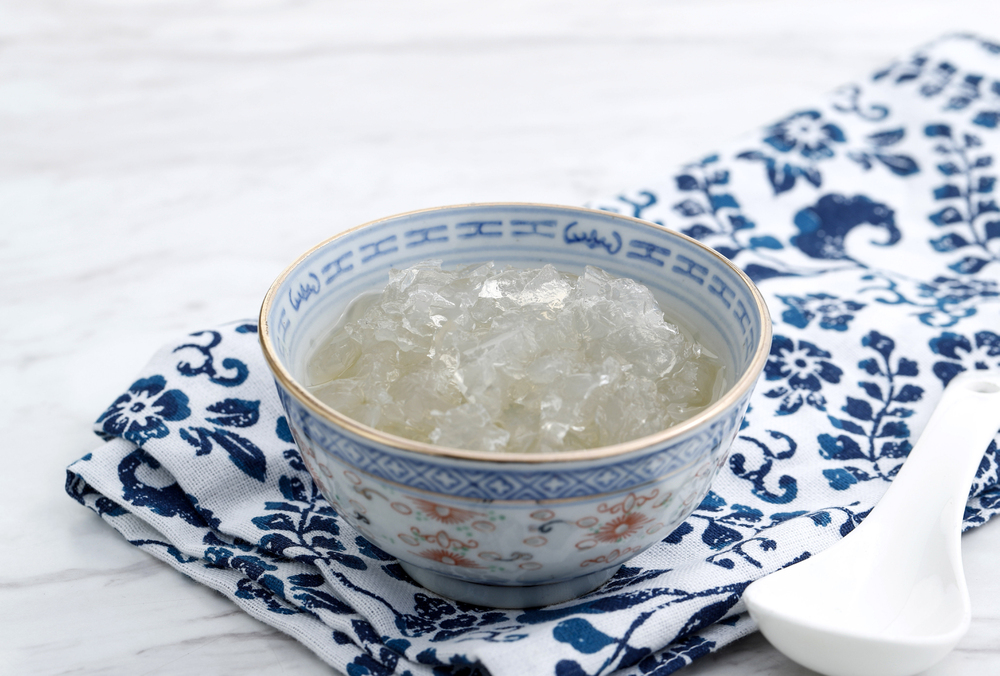
Bird’s nest soup is a Chinese delicacy made from the nests of swiftlets, which are created from the birds’ saliva. The nests dissolve into a gelatinous texture when cooked, resulting in a soup that is highly prized for its supposed health benefits. This expensive dish is believed to promote good skin, boost the immune system, and enhance longevity. Its unique ingredients and purported benefits make it a luxurious treat.
Kopi Luwak
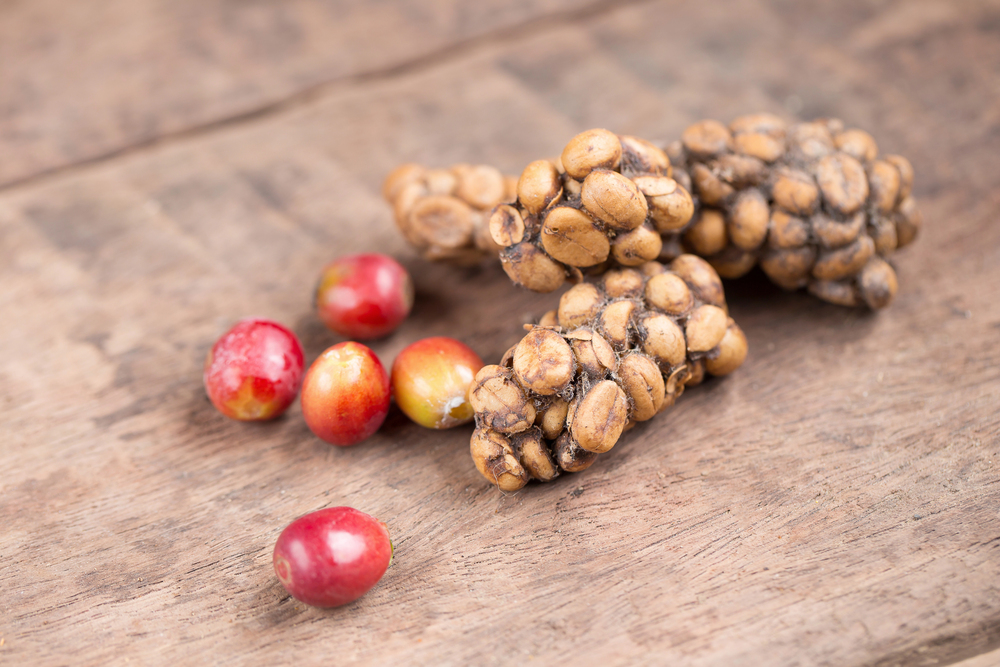
Kopi Luwak is a type of coffee produced from beans that have been eaten and excreted by the civet cat. The digestive process is said to enhance the flavor of the coffee, making it smoother and less bitter. This rare and expensive coffee is often sought after by connoisseurs for its unique taste. It’s a fascinating example of how unconventional methods can create gourmet products.
Rocky Mountain Oysters
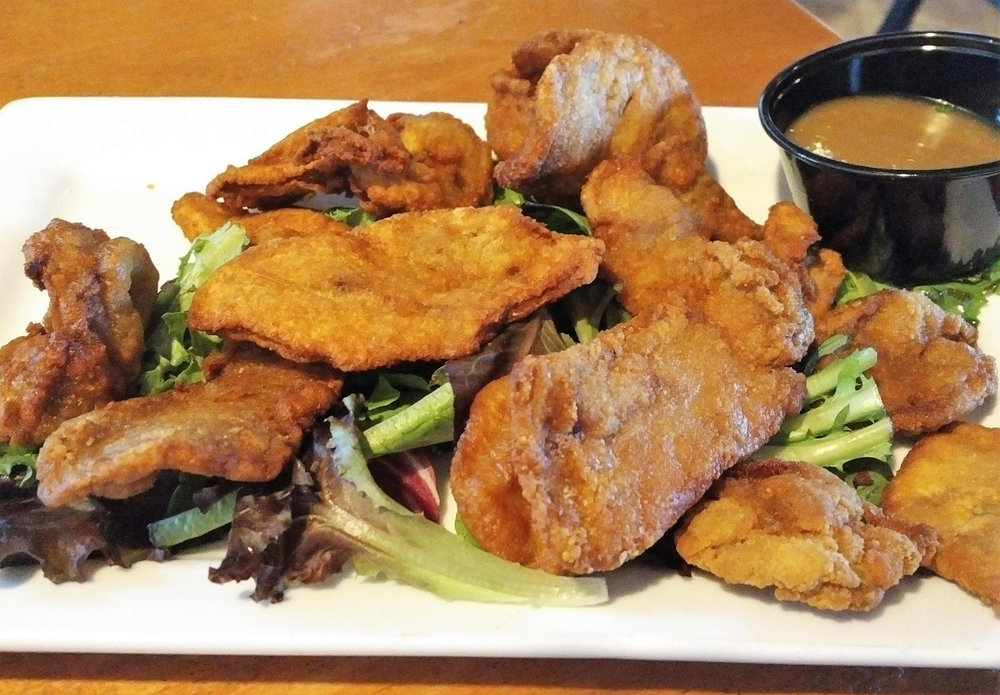
Despite their name, Rocky Mountain oysters are not seafood but rather deep-fried bull testicles. This Western American dish is often served as an appetizer and is known for its tender texture and mild flavor. It’s a popular item at festivals and rodeos, offering a taste of cowboy cuisine. While the idea might be off-putting, the actual experience is surprisingly tasty and satisfying.
Witchetty Grub
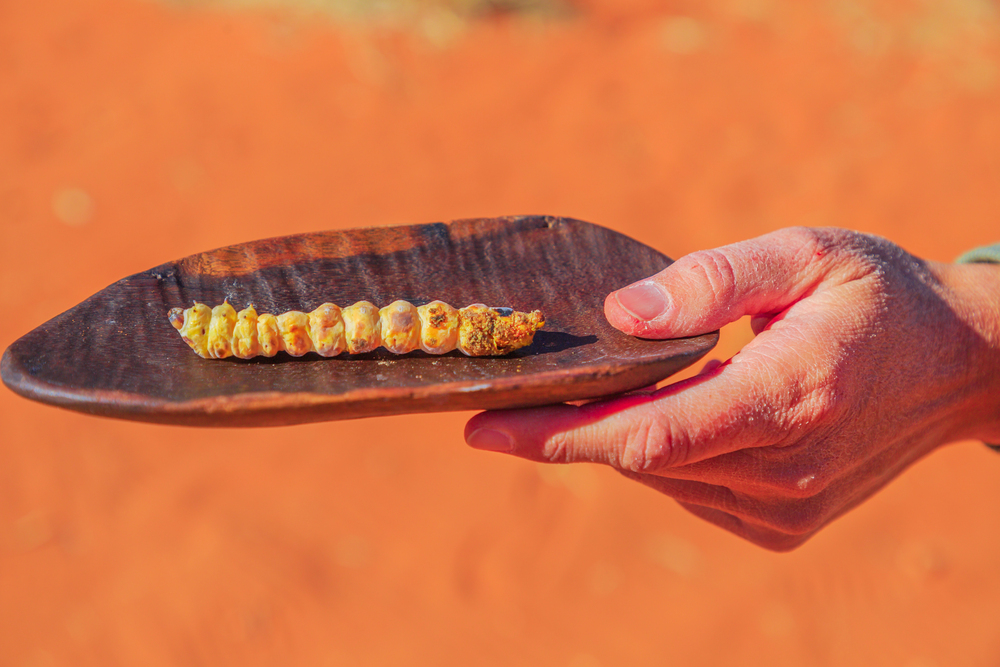
Witchetty grubs are a traditional food of the Indigenous Australians, consisting of large white larvae of moths. They can be eaten raw or cooked, with a taste often compared to almonds or scrambled eggs. These grubs are a rich source of protein and have been a staple in the Aboriginal diet for centuries. Their unique flavor and nutritional value make them a fascinating and sustainable food option.
Escargot
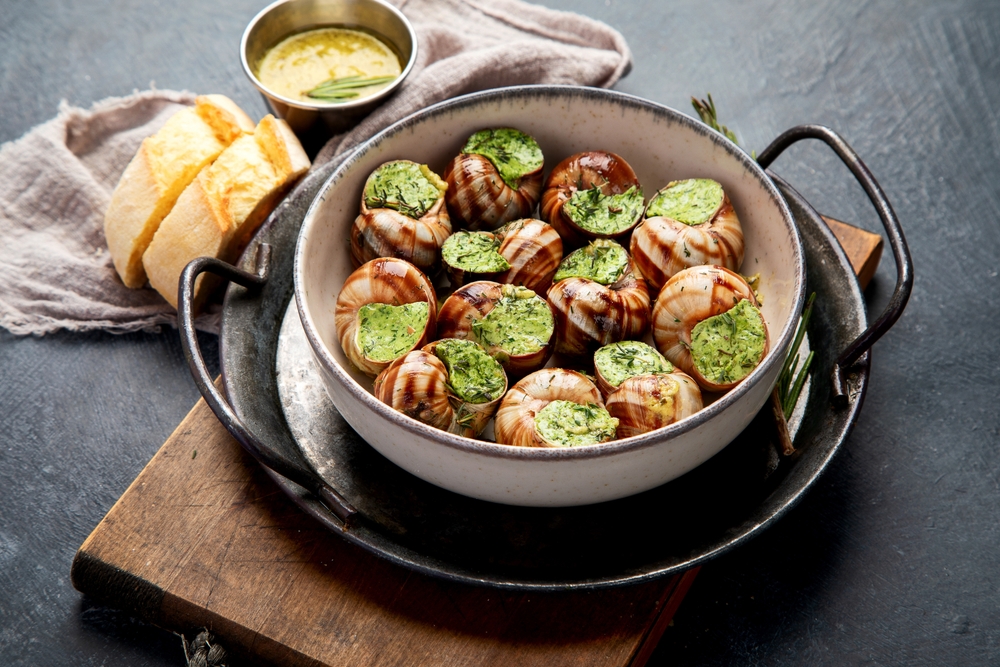
Escargot, or edible snails, is a classic French dish that has been enjoyed for centuries. The snails are typically cooked with garlic, butter, and parsley, creating a rich, savory flavor. Despite their slimy reputation, escargots are considered a delicacy and are often served as an appetizer. Their unique taste and texture offer a sophisticated and delightful culinary experience.
This article originally appeared on RetailShout.
More From RetailShout
15 Trader Joe’s Pasta Recipes That Feel Fancy But Are Easy to Make
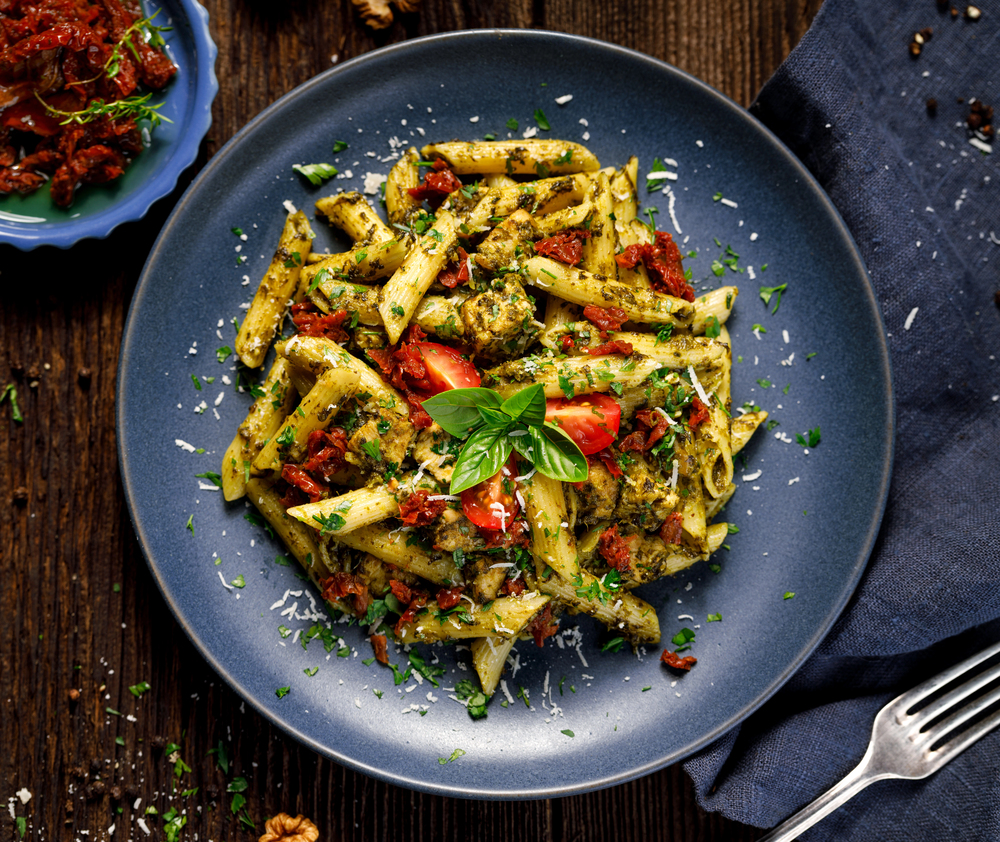
Feeling fancy doesn’t have to mean spending hours in the kitchen. Trader Joe’s offers an array of pasta options that, with a few simple tweaks, can turn into elegant meals. Read More.
15 Irresistible Appetizer Recipes for Your Next Party
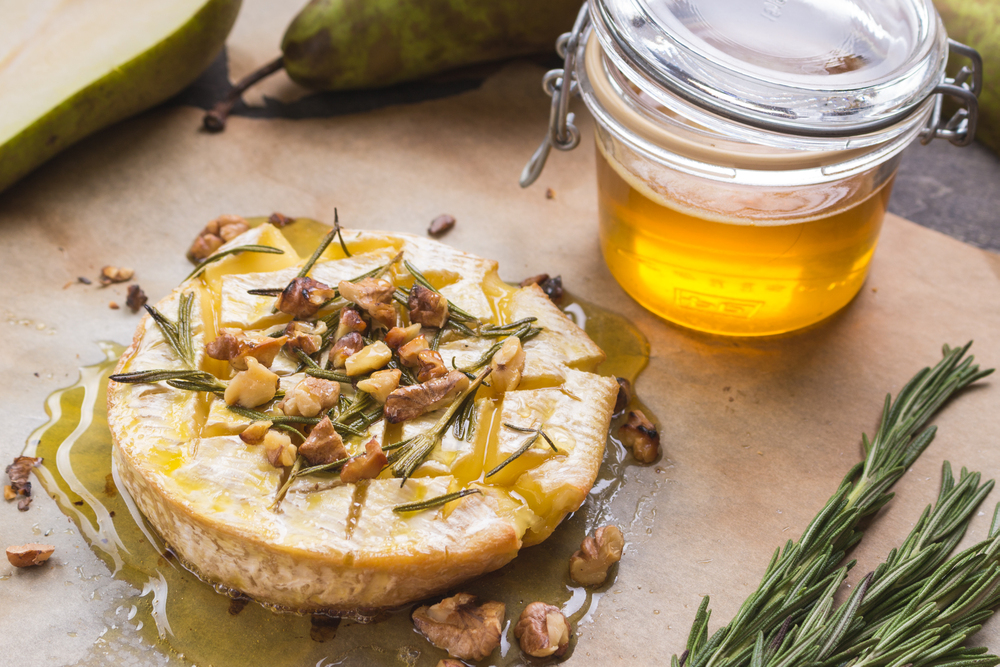
Planning a party can be fun, but figuring out what appetizers to serve can be a challenge. You want something that’s easy to make, sure to impress, and keeps everyone coming back for more. Read More.
17 Packaged Foods with More Sugar Than You Think

Sugar has a sneaky way of showing up in the most unexpected places. You think you’re making a smart choice, but that innocent-looking product is packing more sugar than you’d ever guess. Read More.

